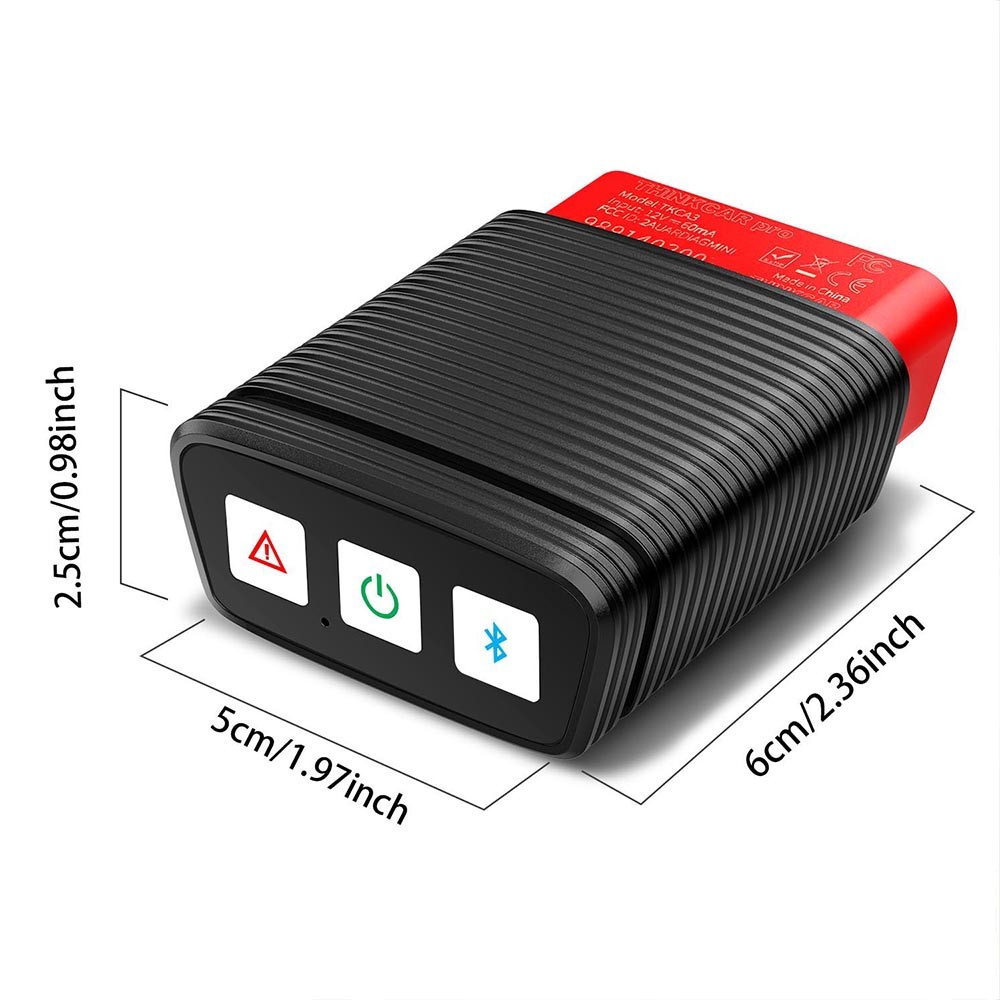For car owners, understanding your vehicle’s health is becoming increasingly important. Modern cars are complex machines, and when that check engine light illuminates, it can feel like a mystery. This is where OBDII scanners come into play, offering a window into your car’s computer system. Among the various options available, the Fixdtm Obdii Scanner is presented as a user-friendly tool for diagnosing car issues. But how does it stack up, and is it the right choice for you? Let’s delve into the world of OBDII scanners and explore the features and benefits of the FIXDTM, alongside other options in the market.
 Mini OBD scanner
Mini OBD scanner
The fixdtm obdii scanner aims to empower car owners with the ability to understand and address vehicle problems without immediately rushing to a mechanic. These devices connect to your car’s OBDII port – typically located under the dashboard – and communicate with the vehicle’s computer. By doing so, a fixdtm obdii scanner can read diagnostic trouble codes (DTCs), which are essentially error messages generated by your car when something isn’t working correctly. These codes can range from minor issues like a loose gas cap to more significant problems within the engine or transmission.
The advantage of using a fixdtm obdii scanner is clear: it provides you with initial information to understand what might be wrong with your car. This knowledge can be invaluable. For example, knowing the DTC allows you to research the potential issue beforehand, giving you a better understanding when you speak with a mechanic or decide to tackle a repair yourself. Moreover, many OBDII scanners, including the fixdtm obdii scanner, can clear these trouble codes, which can be useful after performing a repair, or simply to reset the check engine light to see if the issue recurs.
While the original article mentions several OBD scanners, including the ANCEL AD410, Creator C310 plus V11.0, and KEY TOOL MAX + MINI, it’s important to understand how the fixdtm obdii scanner differentiates itself. The article highlights the FIXDTM’s 30-day money-back guarantee, suggesting a focus on customer satisfaction and confidence in the product’s functionality. It also draws a parallel to driving tracking devices used by insurance companies, hinting at features that might go beyond basic code reading, potentially including vehicle tracking or data logging capabilities, though this needs further clarification as the primary focus remains on diagnostics.
One key benefit mentioned for the fixdtm obdii scanner is its ability to work across multiple vehicles with a single sensor. This is a valuable feature for households with more than one car, or for DIY mechanics who work on various vehicles. The Bluetooth connectivity and compatibility with both Apple and Android phones further enhance its user-friendliness, making it accessible to a wide range of users. The article positions the fixdtm obdii scanner as particularly useful for used car shoppers. Imagine inspecting a used car and the check engine light is on – having a fixdtm obdii scanner allows you to quickly diagnose the issue, potentially saving you from purchasing a vehicle with hidden problems or providing leverage for price negotiation.
Furthermore, the claim that the fixdtm obdii scanner can detect 66,000 problems suggests a comprehensive diagnostic capability. While this number is impressive, it’s crucial to understand the scope and accuracy of these diagnoses. A good OBDII scanner should not only read codes but also provide helpful information about the potential causes and possible solutions. The mobile app integration mentioned in the original article is crucial here, as it promises detailed reports and the ability to track the diagnostic history of up to five cars. This feature adds significant value, especially for users who want to maintain a record of their vehicle’s health over time.
In comparison to other scanners mentioned, like the ANCEL AD410 which is presented as a budget-friendly entry-level tool, or the Creator C310 plus V11.0, known for its BMW-specific capabilities, the fixdtm obdii scanner appears to be positioned as a more versatile, user-friendly option with broader vehicle compatibility and potentially more advanced features through its app integration. The KEY TOOL MAX + MINI, on the other hand, seems geared towards more advanced functions like key programming and vehicle customization, placing it in a different category compared to the fixdtm obdii scanner which emphasizes diagnostic accessibility for everyday users.
Ultimately, choosing the right OBDII scanner depends on your individual needs and technical expertise. If you are looking for a user-friendly, versatile scanner that works with multiple vehicles, offers Bluetooth connectivity, and provides detailed reports through a mobile app, the fixdtm obdii scanner is worth considering. Its ease of use and comprehensive diagnostic claims make it appealing for both novice and experienced car owners who want to take a proactive approach to vehicle maintenance and repair. However, remember to always verify the compatibility of any OBDII scanner with your specific car make and model before purchasing. Understanding your car’s diagnostic data is the first step towards informed car ownership, and a tool like the fixdtm obdii scanner can be a valuable asset in that journey.
